Padel ball instead of drinks, high-tea in place of cocktails, and start-up pitches on a walking track—Indians are finding innovative ways to network, and even date, and booze is not invited!
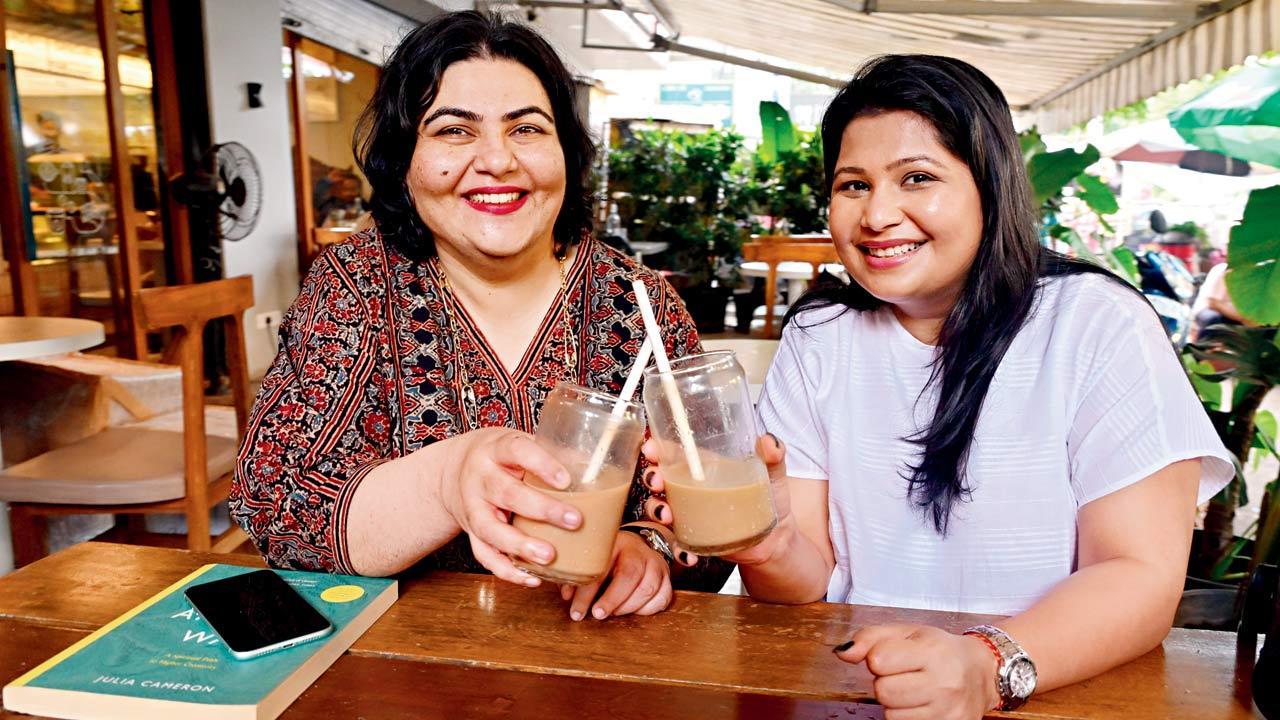
Deepika Prabhu (left) has limited her alcohol intake, with the help of her friend Radhika Dhawan. Pic/Atul Kamble
Anamika A (@Delhiwalididi) from Delhi said on X last month: “My husband has stopped drinking after COVID. Surprisingly, his friends have stopped visiting us and rarely invite him to get-togethers. We have normalised drinking to such an extent that people have started thinking it’s the only way to mingle with friends.”
ADVERTISEMENT
A robust 6.7 lakh views sparked the following conversation: “The reason I am not invited by my friends when they plan to meet,” commented Dhruv Aggarwal. “Well, they were never his friends… friends don’t stop being friends over drinking habits,” reasoned Diggy Ankoti.
This took us down the clean living road, specifically the one sans alcohol, to check whether it really was as lonely. The quiet sober rebellion comes at a time when India’s alcohol consumption could put a bibulous Irish to shame.
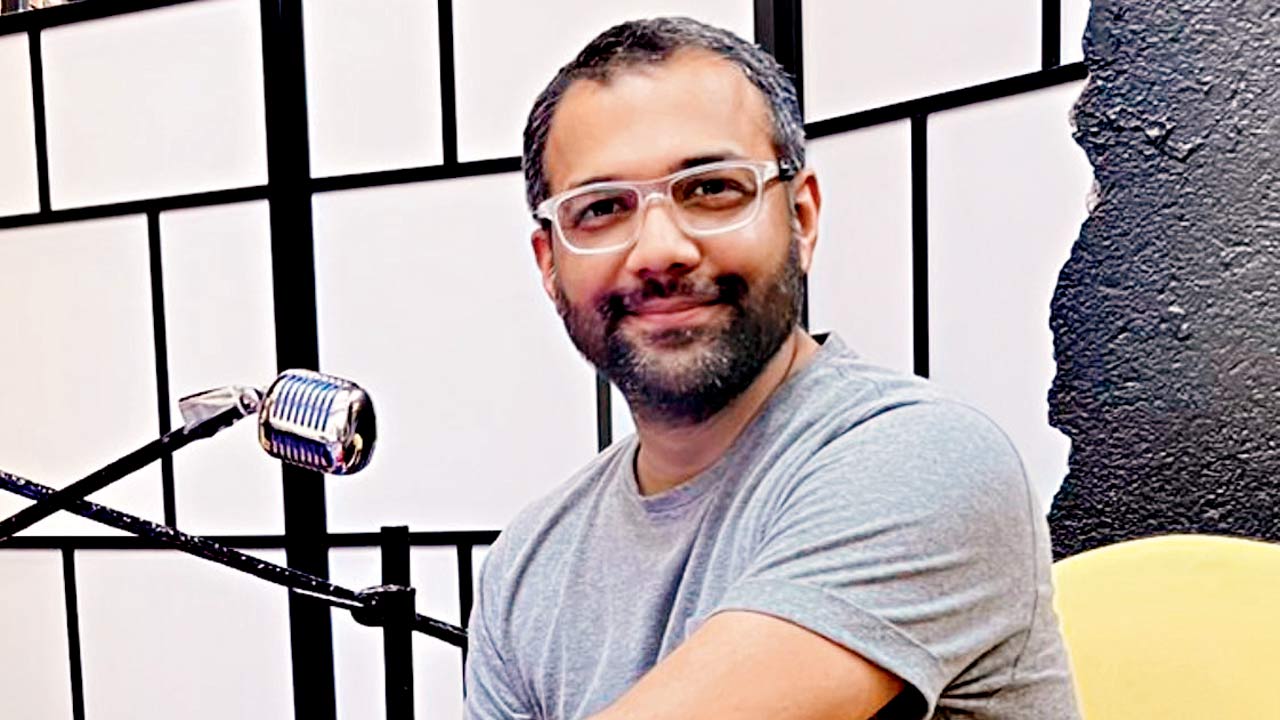 Ankit Vengurlekar, executive editor Amazon, former journalist
Ankit Vengurlekar, executive editor Amazon, former journalist
As per the International Wine and Spirits Record (IWSR) Drinks Market Analysis, India accounts for a little over one per cent of volume growth of total alcohol consumption in 2022 globally; spirits volumes increased by over 12 per cent, with beer up to 38 per cent; wine consumption is over 19 per cent, and ready-to-drink (mixers) is above 40 per cent. Grand industry numbers notwithstanding, the glass is more empty than full.
When Pushkaraj Shirke left the boozy world of advertising for his first love, fitness, he also gave up lager. “It’s been seven years since,” says the Andheri resident. “I drink twice a year [now]—on my birthday, and maybe New Year’s eve. I never really liked it; I just did it because I didn’t want to be left out, especially early in my career where networking revolved around drinking. Since I had long realised that it doesn’t do much for me, it was easy to let it go.”
The career switch made it easier for him to transition to two drunken nights a year. “In the fitness industry, people are more accepting of healthy choices,” says the part-time commentator for Ultimate Fighting Championship matches. “Many don’t even bat an eyelid when I tell them I don’t drink. In advertising though, I was treated as if I was a weirdo if I refused to drink when wooing clients. So I went out and found my own tribe of weirdos.” Shirke informs he has very few colleagues/friends from his advertising days both because he realised that resisting their insistence to have a drink was too exhausting and he had found a new set of friends who matched his wavelength.
Also Read: Mid-day Explains | The sober curious movement is here to stay
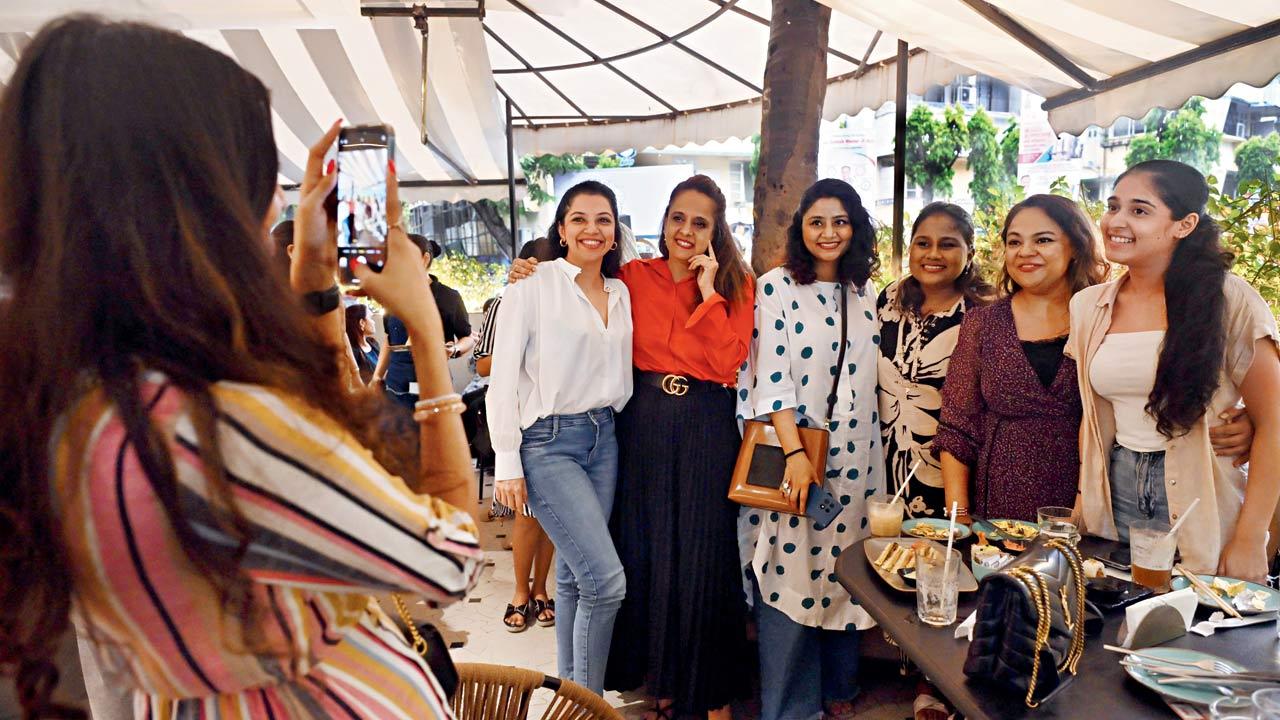 NetworkingNow founded by Shaan A Khanna is a WhatApp subscription membership for entreprenous and founders where networking is based around acitivities like a chocolate tasting or a breakfast mixer. Pic/Atul Kamble
NetworkingNow founded by Shaan A Khanna is a WhatApp subscription membership for entreprenous and founders where networking is based around acitivities like a chocolate tasting or a breakfast mixer. Pic/Atul Kamble
Alcohol monitoring apps such as DrinkControl and MyDrinkaware support this wave of abstinence. In the precise words of the latter: Whether you want to cut down your drinking, drink less to lose weight, or go totally alcohol-free, our app can help you meet your goals.
In 2023 MyDrinkaware released numbers that it had been downloaded nearly three lakh times since their 2021 launch.
Former journalist, now executive editor at Amazon, Ankit Vengurlekar moved to Bengaluru from Mumbai and stayed there as the city boded well with his choice to go completely alcohol-free. “Bengaluru has places like Cubbon Park and comparatively a lot more open space than Mumbai, which is why though I had a tough time adjusting initially—the trade-off is much better for me. The media industry is no stranger to networking with drinks, and that is what I did until a few years ago when I moved to Bengaluru,” he says. But the biggest change for Vengurlekar was adopting a militant approach to alcohol: A refusal to attend events that serve alcohol or even go on dates in the evening. “I don’t want to be with someone who is drinking instead of engaging with me meaningfully. I am present fully during my dates and I expect the same from them, so most of my dates are either for breakfast, lunch or coffee. And I’m very clear that the no-alcohol rule is non-negotiable. While what people do in their private time is their business, I don’t find it too unreasonable to draw boundaries when they are with me.”
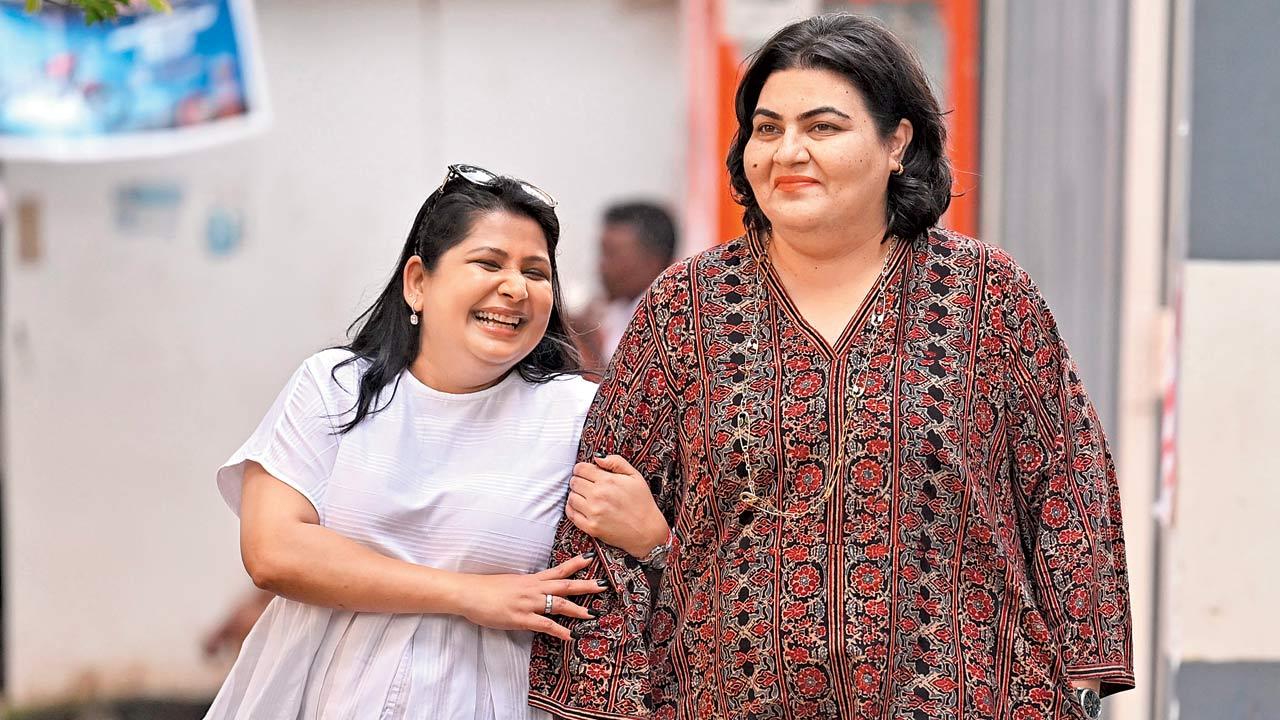 Deepika Prabhu (right) has worked through her anxiety and limited her alcohol intake with the help of her friend Radhika Dhawan. Pic/Atul Kamble
Deepika Prabhu (right) has worked through her anxiety and limited her alcohol intake with the help of her friend Radhika Dhawan. Pic/Atul Kamble
But hasn’t that affected his social circle or the way he has been networking in a new city. “No!,” he says. “In fact I have gained so much more than I ever did at those drunken networking events where half of the things we spoke about were forgotten by next morning.”
The 41-year-old is a founding member of a WhatsApp group called the “Weekenders” with 72 members with 65 per cent women, in the city that focuses on networking with clean lifestyle choices/habits. “Now my weekends start earlier than weekdays,” he says. “For example, I am going for a networking hike at 5 am this Saturday. I find more meaningful connections with those who, like me, want to concentrate on a clean life.”
As for losing friends post his alcohol-free decision four years ago—“Good riddance!” is Vengurlekar’s reaction, who refuses to spend time with those who do not match his new life philosophy.
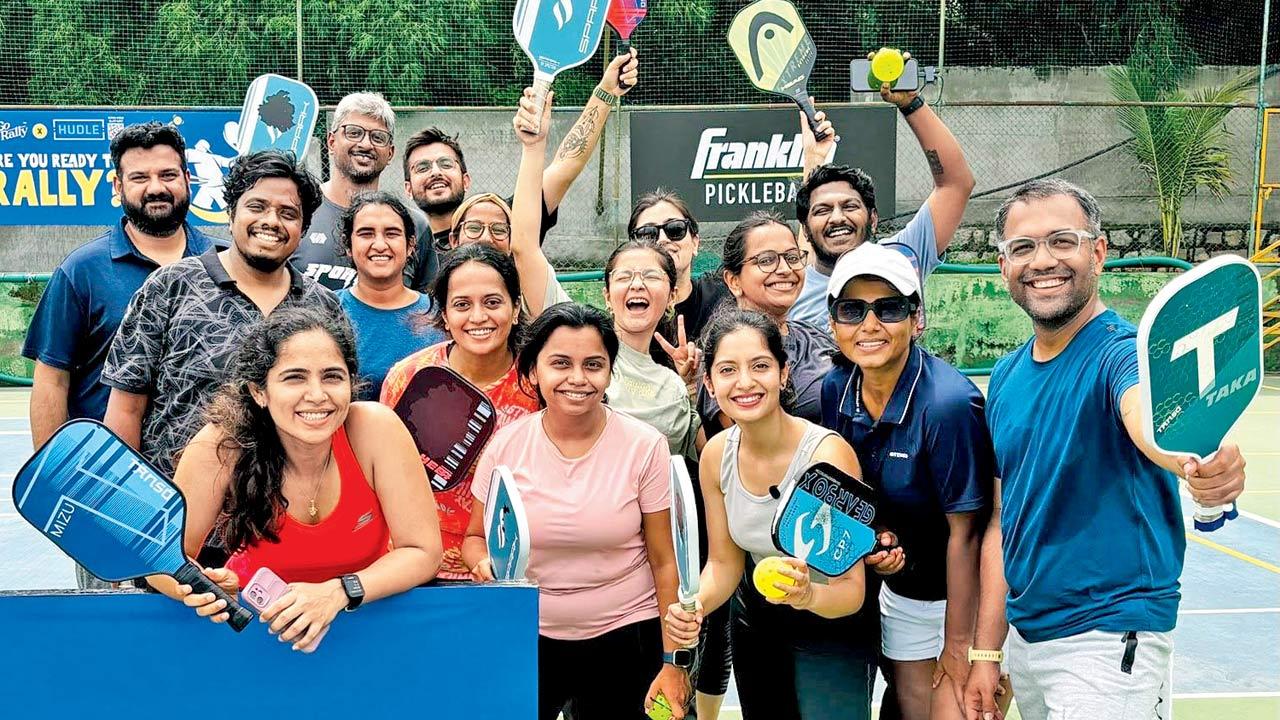 Ankit Vengurlekar (extreme right) with his WhatsApp group “Weekenders” networking over padel instead of drinks
Ankit Vengurlekar (extreme right) with his WhatsApp group “Weekenders” networking over padel instead of drinks
Shirke took the social ostracisation punch harder. It took some time to get used to, and to deflect, people admonishing, arguing and finally leaving him out of the social circle. “It definitely hurt at the beginning,” he says. “There was a lot of ‘Why?’ and ‘Just one drink’. Unfortunately for them, I am a bit stubborn; no one could push me into drinking. It did affect networking until I found a workaround. I began to get picky about which events to attend, and after a year or so, choose quality over quantity.”
Similar sentiments underline Shaan A Khanna’s NetworkingNow, a largely no-alcohol networking collective that has existed for over seven years. A paid membership via WhatsApp with 3,500 members in their mid-twenties to 40s, helps entrepreneurs and allied professions such as corporate communication personnel mingle at breakfast mixers, without having to sacrifice one’s liver at the altar of networking.
“The Number One rule is ‘Do not get drunk’,” says Khanna, “Which is why we have consciously taken away temptation by having only one or two events in six months that involve alcohol—just a Diwali or Christmas party. That’s pretty much it.” Even these have an alcohol limit.
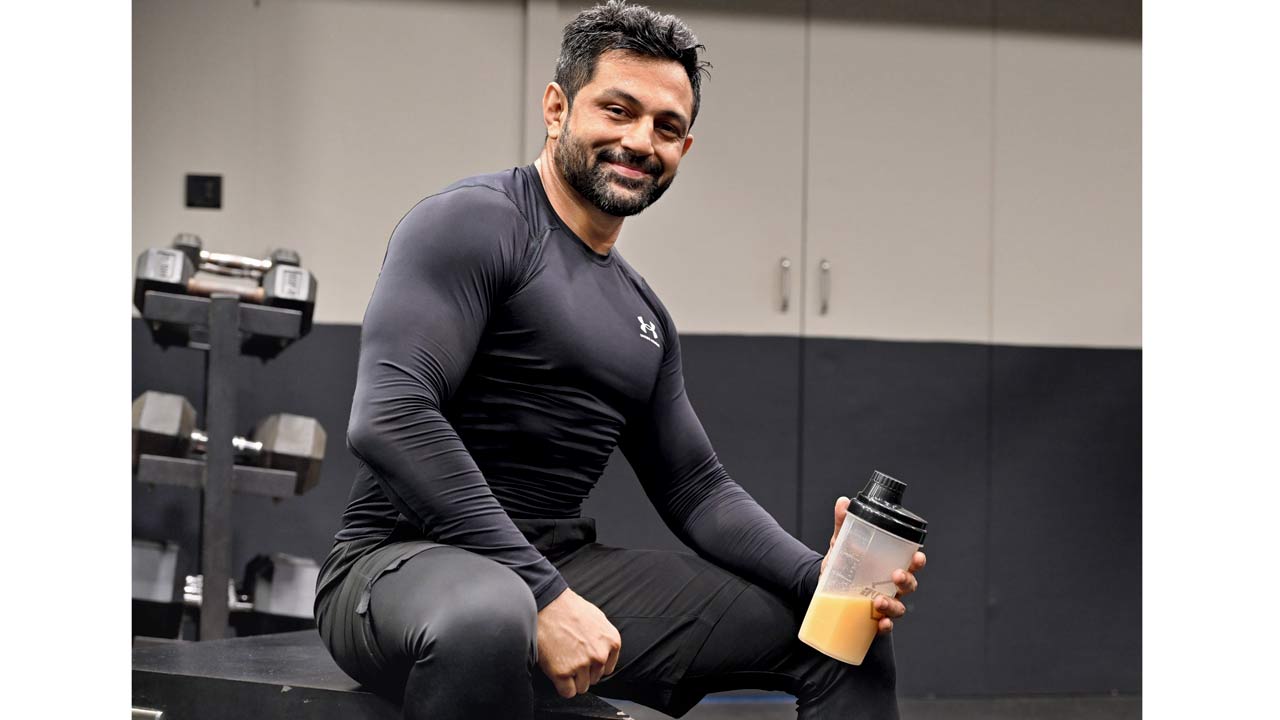 Pushkaraj Shirke gave up drinking over seven years ago when he shifted careers from advertising to fitness. Pic/Nimesh Dave
Pushkaraj Shirke gave up drinking over seven years ago when he shifted careers from advertising to fitness. Pic/Nimesh Dave
All the other events, two to three per month, are dry. “The dry high-tea and chocolate-tasting events we had this week were attended by 30 to 40 people,” says the Colaba resident, who says that people’s reliance on alcohol to relax and mingle has been decreasing. “People are more confident in spaces where they might not know anyone; they know who they want to connect with and go for it. Relaxing via alcohol is no longer a networking need,” she tells us over the phone.
I could drink any guy under the table,” says Deepika Prabhu, a freelance publicist who lives in Thane. “When I was young, I wanted to party, be cool, in with the hip crowd and so I drank. But there comes a time when you want to grow up and dancing on table tops is not as appealing.”
The turning point for the 42-year-old came at 33 when she was diagnosed with clinical anxiety. “After a drink, I would sense a loss of control causing me to panic,” she says, clearly reliving those moments. Since she wasn’t addicted, Prabhu could go cold turkey overnight.
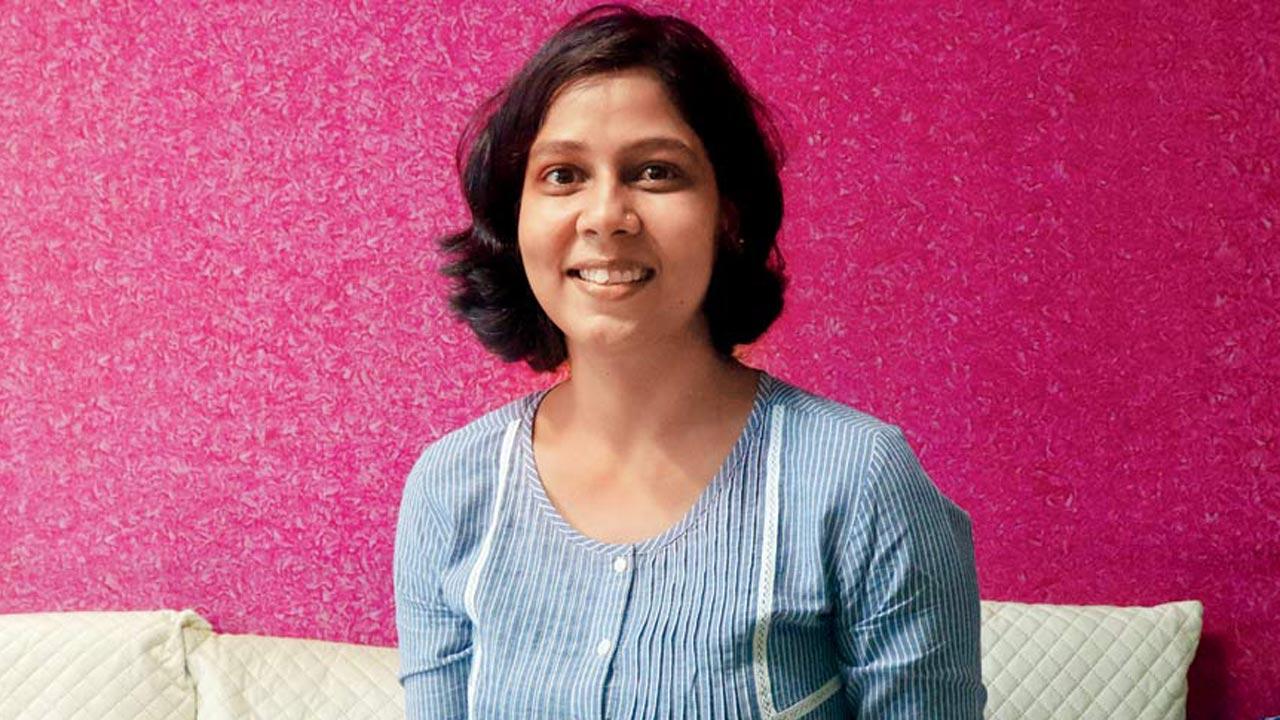 Vinam Bhagat
Vinam Bhagat
At first, she downplayed her abstinence at high networking events. “I would request a Diet Coke on rocks,” she says, “A few years back I asked for a 30-ml peg and soon it became a joke—‘Why not a 15 ml’ my friends would say.”
A 2019 study—Co-Occurring Alcohol Use Disorder and Anxiety, Bridging Psychiatric, Psychological, and Neurobiological Perspectives—revealed that 50 per cent of people who have anxiety are prone to using alcohol as a crutch, leading to Alcohol Use Disorder (AUD).
Prabhu’s networking strategy now is to go in early, mingle, make a few contacts and get out in under 60 minutes flat. “It’s also how I have largely escaped the burden of being the designated driver,” she says. The acerbic publicist didn’t have a drop of alcohol for six years; in the last two years, she has had a drink or two in safe spaces with friends who know about her diagnosis. “I don’t know when I last had a drink, but I also don’t want to run away from something out of fear. So I only drink with friends who can squeeze my hand and anchor me if I feel loss of control creep in, which it hasn’t yet,” she chuckles dryly. Meditation aids Prabhu’s clean living.
Vinam Bhagat, a Yoga Vichy instructor and certified nutritionist from Kharghar, says, “Many people with high stress jobs burning the midnight oil realise that a drink does not relax them. In fact, it makes things worse. You are constantly putting your chakras out of sync with bad eating habits, no exercise and then instead of doing something for your body, you ply it with alcohol. Alcohol is the worst a city professional can do to an already wrecked system. Someone somewhere told us that it will help us relax, and we believe it…”
Radhika Dhawan, a mindset coach, specialises in reframing beliefs and helps to set goals while avoiding labels such as “issues”, “problems”, replacing them with a less defeatist vocabulary, like challenges. She worked with Prabhu to tackle the latter’s anxiety and towards better choices.
“The way we approach networking is evolving and people are becoming more open to options beyond just grabbing drinks,” says Dhawan of the movement to grow in a profession without the haze of alcohol. “Clients, especially entrepreneurs/founders between 35 and 50, are finding that meaningful connections can be built in more diverse environments.”
For many such self-starters, their job is a lonely one involving playing many roles until success facilitates the hiring of a team. But creative workarounds are always possible. One client met a potential investor for an early morning walk in the latter’s amenity-rich society. “Others are opting for activities like padel or pickleball in Colaba, Juhu or Bandra. These alternatives are not only more accessible but also offer opportunities for building deeper, more meaningful connections,” says Dhawan.
Dhawan decided to work in the specialisation of helping professionals with a better work approach if they are stuck and gives them tools via goal setting. This was sparked by the lack of direction she had felt as an entreprenuer. Her clients include not only those in India but in other countries where professionals seems to feel that they are not sure where their careers are headed.
These healthy networking choices are supported by data found in 2019 by market research company NUMR—about 33 per cent of millenials spend more than Rs 4,000 on health and wellness every month.
Shirke believes that the alcohol industry has often through false advertising often handed people either excuses or reasons to get drunk and hopes that people are finally seeing through alcohol’s false advertising. Shirke brings to notice one of the widely held beliefs that a glass of red wine provides one with antioxidants and works as an anti-inflammatory. “How can a glass of wine, that costs you R1,000, have more antioxidants than a single tablet that might have the same ingredients for much lesser? The wine thing is one of the biggest lies we were fed, it was complete bulls***t,” he states unapologetically.
Cheers to that.
India’s booze consumption
5 bn
alcohol consumption in India in 2020
6.21 bn
estimated alcohol consumption of India by 2025
 Subscribe today by clicking the link and stay updated with the latest news!" Click here!
Subscribe today by clicking the link and stay updated with the latest news!" Click here!







